- Home
- Hilary Mantel
Giving Up the Ghost Page 12
Giving Up the Ghost Read online
Page 12
Many years later, I asked my mother if she remembered the Brosscroft curtains, the curtains with the window design. I used to imagine, I said, that I vanished into their texture and lived there, within the warp and weft of their cloth; that I lived behind their shutters and balconies, that I owned those window boxes and those pots with the spilling scarlet flowers. My mother turned away, so that I couldn’t see her face. She whispered, and I, oh so did I.
Those were cold years for her. Love doesn’t light the meager fire in the grate or fill the children’s bellies. And childhood was a sort of gulag for me; I was cut off, adrift. Conditions changed from year to year; sometimes I moved to another camp, where I waited to see if the regime would be better or worse, more or less survivable, and where I scrambled quickly to learn the rules. It wasn’t particularly anyone’s fault. Few people acted with malice toward me. It was just that I was unsuited to being a child.
At ten, I developed catastrophic hay fever. I sneezed and shook for a whole summer long, my weeping eyes were blind and sealed to slits. Between my eyelids I saw flashes of scarlet, the petals of flowers: geraniums.
When the day of the Eleven Plus results came, I was at home as usual, sick. I had no expectation that I would earn a grammar school place, and no particular hope of it. It seemed out of my hands—as it had been for Grandad, whose parents couldn’t afford the uniform: as it had been for my mother, whose teachers had simply forgotten to enter her for the exam.
Just after four o’clock Bernadette came to the door. I went to open it. She stood squarely on the front step and looked me up and down. “Ye’ve passed,” she said, unsmiling.
I fell back into the house, my hands across my heart. And you?
Soberly, she nodded. Perhaps she was in shock.
“Give Bernadette some orange juice,” my mother said.
I went into the dim pantry with the deep stone shelves. The ghosts rolled under them, sucking their teeth in envy and malice. My hand trembled, the neck of the bottle knocked against the rim of the glass. Passed. Who would have thought it? Passed. So I can have a life, I thought.
Within a few weeks we were moving house: myself, not my father, my mother, Jack, the two little brothers and the one dog that was left. By the end of the summer we would be gone. We would be gone to another town. We would have a semidetached house. It would have a lawn. It would have a rockery; it would have an apple tree, and “even the blush of the rose is faintly visible.” We would have new carpets and another name. We would be gone so fast that by September, when the new school year began, we would be a scorched trail on the air.
My childhood ended so, in the autumn of 1963; the past and the future equally obscured by the smoke from my mother’s burning boats.
Smile
For the next seven years, I lived with my mother and Jack, two brothers and a dog, in a house in a small town in Cheshire.
Sometimes, when I had known Jack at first, he would lend me his fountain pen. The pen’s name was written on its barrel: Swann. When I wielded Swann, my writing came out mysteriously like his, black and small and without ornament: a man’s hand. But by the time I reached my teenage years, this privilege was withdrawn. I had to hack my own words onto paper with whatever deficient instrument came to hand. My handwriting was always changing, getting remodeled; my practical skills were not many, and those I had were hardly commercial. By the time he was midway through his teens, my brother who had kicked the bottom out of his pram could rip an engine out of a car, and practically build a house; at the same age I couldn’t even wire a plug. I lived in terror that Jack would one day teach me how; but he didn’t seem to think that women and electricity could be trusted together. Luckily for me, we had moved to a house where there was no gas.
When you go to a new country, or join a new tribe, the first thing you must learn is the ceremonies of greeting and farewell. In our new town—or “village,” as it called itself, looking back steadfastly to the genteel past—the easy familiarities of Hadfield were nowhere in evidence. No one went from house to house with the gossip, or barged into your front room yelling, “It’s me.” People had bells on their doors, and those bells were for use. When people asked, “And how are you?” it was not a question that demanded a reply. When you left a shop, instead of Hadfield’s downbeat “t’rah,” they sang out, “Bye now!” Even men sang it; it didn’t sound very manly. In Hadfield, men had no form of farewell that I could remember. If they were going out, why should they mention it? It wasn’t your business. They simply wrenched open the door and hurled themselves, teeth gritted, into the moorland wind.
Our new house was on an avenue, not a street. It had a glass porch and a bay window, a hall, two rooms, a small poky kitchen: upstairs, two good bedrooms and a box room—mine—and a bathroom. A bathroom! Before we moved in we used to visit the house, for fixing-up sessions. The empty rooms smelled of floorboards. The little boys played in the garden, among the late summer ghosts of the hybrid teas. Secretly, upstairs by myself, I climbed into the bath without any water, with my clothes and shoes on, to see what kind of enclosure it was: where your head came, and where your feet. “It seems strange,” I said to my mother dreamily, “to say you’ve never had a bath before.” She looked at me in shrinking horror, as if she feared I might say that outside the house.
The bathroom was old-fashioned, and the first thing Jack did was to box the bath in so that you could not see its legs. Later he made the paneled doors flush; everything was being squared up, modernized. My mother fixed a panel of black quilted plastic to the back of the sitting-room door, and secured it with shiny brass tacks. It was le dernier cri. None of the neighbors had such ideas about decor. Their houses, glimpsed but seldom entered, had patterned carpets and chintz; their pale wallpaper had flowers on, and there were lace mats on their sideboards. My mother was too go-ahead for a sideboard.
But there were some markers of the middle classes we could not do without. We went out to buy a three-piece suite. It was boxy and angular, moss-green with seat cushions of a dashing bold check; it was nothing like the suites of the neighbors. And those curtains that came only to the windowsill, my mother said, she powerfully despised. Our curtains with the windows on were left behind at Brosscroft; our new curtains had dramatic silk stripes and fell to the carpet. When they were drawn, shutting out the autumnal garden, the scrubby lawn littered with windfalls, the creaking pergola arch with the rotting wood and the rambling rose, I whispered to my mother, “It’s like a stage.” She smiled, gratified. Behind the curtains night fell, peaceful on ornamental stonework, on dwarf conifers and garden ponds; the drama was played out among us, the audience. Our house was like a million other houses in a million other streets, but our perplexities, our hesitations were all our own; we had secrets, and we did not think other households harbored any.
But I must have begun to know that every house was different, that every house had a secret life, because at the end of the summer of ’63, after we moved into the avenue, I got into the habit of walking up and down, examining the façades of our neighbors, eyeing up their paintwork, and scrutinizing their shrubs. Then I went farther afield, up the avenues, drives, and closes, and around the crescents, noting how some houses had square bays and some had portholes for porch windows, some had panes of stained glass and some had scrolly metalwork gates instead of plain wood. Some houses had names. Ours was called “Arcadia.” But the name had dropped off long ago, and it had become plain Number Four.
One day, a week or so before we moved in, I walked into an empty room and saw Jack’s tweed jacket hanging from the doorknob. It surprised me; empty clothes have always been worrying to me, and it was as if Jack himself, being occupied elsewhere, had left the coat in loco parentis, imbued with his authority and power. The boys were outside, my mother and Jack were upstairs; I was alone. Sunshine spilled in at the uncurtained window. It was afternoon: that time, around three o’clock, when a day seems to pause and yawn, before stretching itself and ambling forward towa
rd teatime. It was August; the air was still; there was no noise, from garden or street, neither car engine nor birdsong. I walked across to the jacket; I watched it for a moment, then touched its rough tweed. I stood for a time, my fingertips brushing it lightly. Then I put my face into it and breathed in the complex scents that collected in those days in fabrics: industrial smells of metal and rubber, rural smells of ordure and woodsmoke: the smoke of other people’s cigarettes, the Cheshire smell of grass clippings, the lingering Derbyshire smell of peat. I felt a spasm of grief, as if Jack were dead, and as if his soul had gone into the weave of the cloth.
My grief may have been self-serving. Must have been, really. He was all we had now for a husband and a father, even though he was neither of these, and my mother didn’t cease to remind me that not many men would have done what he did, take a family on. But why did she say this? It didn’t make sense to me. I was determined not to be grateful for what was simply inevitable; it was like thanking somebody for the fact that it’s Friday, or complimenting them on having a nose on their face. How could Jack have got her, without us? It wasn’t possible. It wouldn’t have worked. My mother was a jewel and her sons were her setting; I was her packaging material, to be ripped through in excitement and tossed away. So I felt. The boys could grow up and be Jack’s, or as good as: men want sons. Nobody wants a skinny ten-year-old girl with sticky-out teeth and a habit of flinching when you speak to her: a girl who will soon be bleeding all over the bathroom at monthly intervals, whose stockings will always be laddered and whose fingers will always be inky, a thing not childlike, not womanly, always remembering, always knowing things.
When I went to my convent school at first I didn’t know much. My last years at primary school had been conducted under the eye of Mother Malachy, which had rolled at me around the curve of her starched headdress. Many a dreary afternoon I would contemplate her, as she stood at the head of the class and prosed on about this or that. I studied her so that, when I was out of her presence, I could draw her, commit her to paper: my eye traced the bulb of her nose, the coarse swag of her chin. They were long, those days, those schooldays, and Malachy was a heavy static presence within them, her profile unyielding against the cold rainy light. At eleven years old, I knew, you failed your scholarship exam and moved on, to a new school for Catholic failures that had been built in Glossop; until recently, the failures had stayed at St. Charles and rotted, under Malachy’s rule, until they reached the school-leaving age.
I thought I would never attain this failure; the days stretched themselves out, arithmetic in the morning out of the brown book, then a subject called Intelligence, then English out of the green book. General Progress Papers, the books were called, and they had gaps to fill in, where, with a blunt failing pencil, you tried to impose your version over the wrong answers of the people who had gone before, battling away against all the years of folly and error which—if you turned up the page and fingered the back of it—you could read like braille. I thought that time had stopped for me; I thought I should never be free of Malachy, never reach the age of eleven; I felt that she had absorbed me, drawn me to her by my woolly cardigan, by means of static electricity: drawn me into the fusty depth of her habit, and then leached me into her thick body, as if she were my mother indeed, and I was beating at the walls of her nunly womb. The lights burned all day in Hadfield winters, the great radiators puffed and fumed and stank, the odor of Wellington boots and nit lotion and nun became so thick you felt you could graze it with your knuckles; you were, very often, spoiling for a fight.
Malachy’s idea of education was to use up a whole half hour by going around the class, asking the same daft question. In Lent, she said, the statues in church are draped with cloths, velvet cloths of purple black: did we all know that? Yes, Mother Malachy, we chorused: well, they did, I never chorused anything. So, she said to each child, how do you know that? After a prolonged, nervous hesitation—Mother Malachy was very violent—the first child had a happy inspiration. “My mother told me, Mother Malachy.” Next child: “My mother told me, Mother Malachy.” Halfway through—we’d have been, I suppose, thirty-five in the class—some exasperated hero broke out, “I remember it from last year, Mother Malachy.” Shock rippled through the room. The rhythm was broken. But after another excruciating hesitation, the next child resumed, “My mother told me, Mother Malachy.”
But when my turn came, I said nothing. Not a word would I yield. I had made a policy: I would answer reasonable questions, but not ones I thought were senseless. I would write the answer to any question, but speaking was different. Talking was forbidden to pupils in class. If the rule of silence had been imposed, I too could employ silence. Why should I speak because an arbitrary decision had been made, that it was the time for speech?
“Intransigence” was not a word I knew. But I was learning from my mother, learning to keep intact my own opinion of myself. I was learning it too early, though, for my circumstances. My adult reasoning and my small status were at odds. One day Mother Malachy hit me so hard in the face that she propelled me across the room, and spun around my head on the stalk of my neck. Ho, fisticuffs, Madam! I said to myself. I put a smile on my face and turned my head the right way round again. I’d seen her hand coming, sweeping up through her blurring draperies; I watched the boxing on TV with my father, Henry, and I knew how to move defensively, my feet were quick and my eyes also. I was eight then: blinking back the automatic tears that arise in response to a blow, in case they would be seen by her as a vindication. By the time I was ten, my contempt for her was so complete that I must have worn it like armor, for she never exerted herself to lay a finger on me. I was amazed, of course, when Bernadette came to the house, four o’clock on a spring afternoon, to tell me that we weren’t going to Glossop to the school for Catholic failures; that we had passed our examination and were going, instead, to the Convent of the Nativity. I was still more amazed when I got there, and found that the nuns didn’t punch you; not even the lay teachers seemed to want to go ten rounds with a six-stone opponent.
My convent school was a small, gentle institution, a little bit snobbish. Because it was considered the “good” school of the area, the Protestant burgesses of the district paid fees for their daughters to go there, in the knowledge that their girls would be turned out well-spoken, polite, and poised. The sheer numbers of Protestants per class shielded us from the worst excesses of religious zeal. Convent girls, of course, like to consider themselves as restricted, trammeled, and oppressed. So the actual conditions prevailing—which I thought quite liberal—did not prevent the girls telling each other in tones of shocked mirth those stories that are always current in convent schools: that Sister So-and-So had said—“to my elder sister,” or “ten years ago”—that the Holy Virgin would never have sat on a boy’s knee without putting a telephone directory under her thighs, or that Our Mother Mary would never have worn patent leather shoes in case they reflected her knickers. Mother Mary need not have troubled about the footwear; you would have seen nothing even if we’d walked over mirrors, because our maiden crotches were hugged tight by navy blue garments so thick and dense that they could with profit have been worn by men off to the Antarctic. My first set of knickers self-destructed in the course of time; how can this be, were they carried off by giant crows, or did someone throw acid on them as they hung on the washing line? I never got any new ones, so I was forced to rummage in our airing cupboard for whatever was around by way of shrunken nylon panties; and so for many years, and even when in course of time I was elected Head Girl, I slunk around with an illicit bottom.
The Convent of the Nativity, at first, had been off-limits to Hadfield girls, to Derbyshire girls in general. Any girl who sneaked under the wire and wasn’t a Catholic failure was expected to get on the train to Manchester and take herself to one of the gaunt, sooty sanctity factories that ground the girls of the northwest into the pious paste of Catholic womanhood, that turned out Catholic mothers, Catholic nurses, Catholic teac
hers, all of them with an eye cocked for a good Catholic boy with whom they could collaborate to produce a new Catholic generation who could be ground in the same way. But this was of no interest to my mother. She wanted a bit of class.
The education authority said there was no debate about it; they wouldn’t pay for Derbyshire girls to go to schools in Cheshire. They had made their arrangement with the Manchester schools, to accommodate the left-footers, the papists, the awkward squad; they weren’t going to vary it. But my mother had set her heart on this school for me, and she and Jack—since they had to run somewhere—ran over the border and into the small town where the convent was situated. In that way, the problem was solved; but my mother, with pluck and verve, fought the battle with the education authority on behalf of those other little girls left behind. She did not believe in the Manchester convent schools; they were unfit establishments. The girls stole from one another, she said, their conduct and language were shocking; they had ground my cousin Beryl, and ground her into a good Catholic shorthand-typist. My mother envisaged something grander for me; and why shouldn’t Hadfield girls have their chance? She’d had none; but she would make her name, battling this issue; she’d show she was a force to be reckoned with. Eventually a compromise was cobbled together, and on the first day of term, September 1963, a small glum band of Hadfield lasses stood on the edge of their posh new world. In retrospect, this was unfortunate for me. I had changed my surname to Jack’s, and was pretending he was married to my mother, and that I was his daughter. I had to go on and on pretending it. The lasses knew better. They might be only eleven but they weren’t complete idiots; otherwise, they’d have been Catholic failures, wouldn’t they? Word spread.

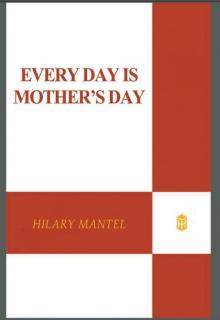 Every Day Is Mother's Day
Every Day Is Mother's Day An Experiment in Love
An Experiment in Love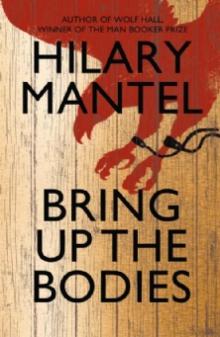 Wolf Hall
Wolf Hall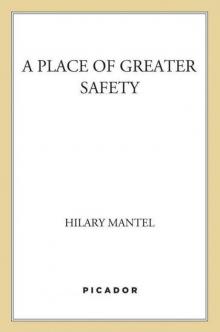 A Place of Greater Safety
A Place of Greater Safety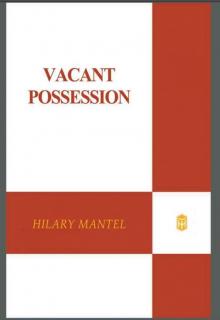 Vacant Possession
Vacant Possession The Giant, O'Brien
The Giant, O'Brien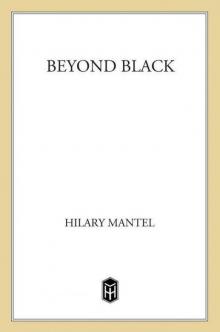 Beyond Black
Beyond Black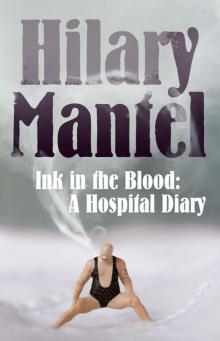 Ink in the Blood: A Hospital Diary
Ink in the Blood: A Hospital Diary The School of English
The School of English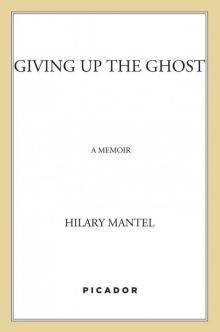 Giving Up the Ghost
Giving Up the Ghost The Mirror and the Light: 2020’s highly anticipated conclusion to the best selling, award winning Wolf Hall series (The Wolf Hall Trilogy, Book 3)
The Mirror and the Light: 2020’s highly anticipated conclusion to the best selling, award winning Wolf Hall series (The Wolf Hall Trilogy, Book 3)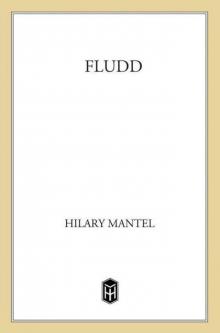 Fludd
Fludd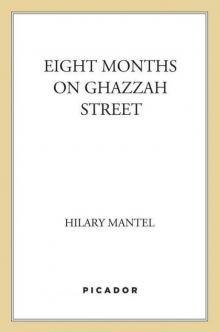 Eight Months on Ghazzah Street
Eight Months on Ghazzah Street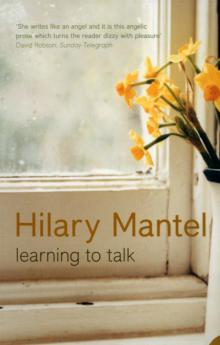 Learning to Talk
Learning to Talk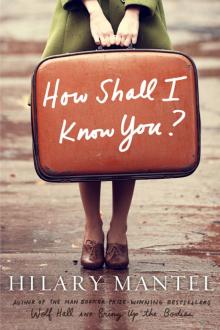 How Shall I Know You?: A Short Story
How Shall I Know You?: A Short Story A Change of Climate
A Change of Climate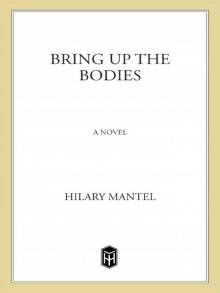 Bring Up the Bodies
Bring Up the Bodies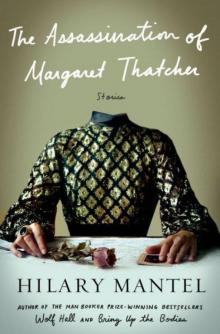 The Assassination of Margaret Thatcher: Stories
The Assassination of Margaret Thatcher: Stories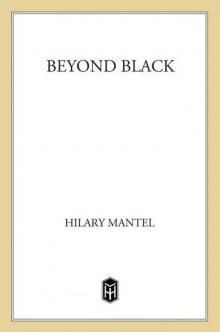 Beyond Black: A Novel
Beyond Black: A Novel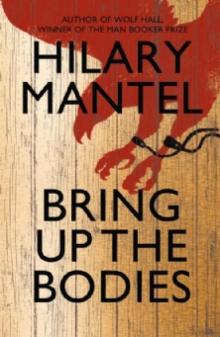 Wolf Hall: Bring Up the Bodies
Wolf Hall: Bring Up the Bodies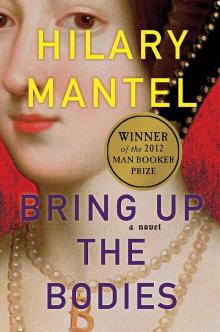 Bring Up the Bodies tct-2
Bring Up the Bodies tct-2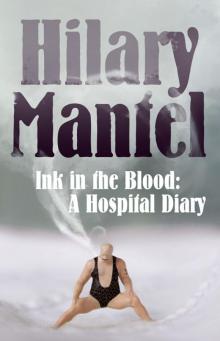 Ink in the Blood
Ink in the Blood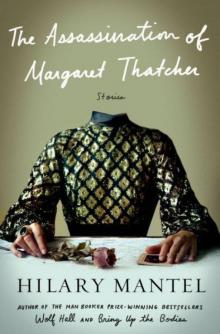 The Assassination of Margaret Thatcher
The Assassination of Margaret Thatcher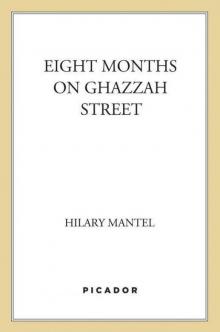 Eight Months on Ghazzah Street: A Novel
Eight Months on Ghazzah Street: A Novel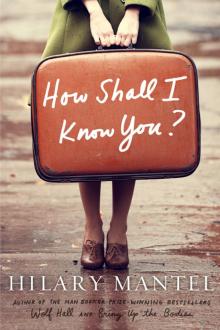 How Shall I Know You?
How Shall I Know You? A Change of Climate: A Novel
A Change of Climate: A Novel The Giant, O'Brien: A Novel
The Giant, O'Brien: A Novel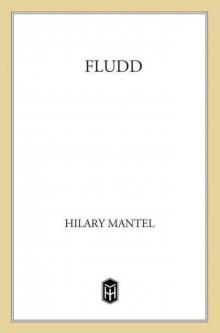 Fludd: A Novel
Fludd: A Novel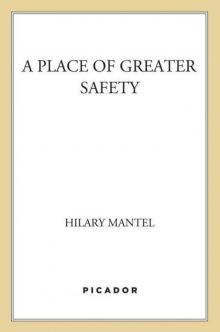 A Place of Greater Safety: A Novel
A Place of Greater Safety: A Novel An Experiment in Love: A Novel
An Experiment in Love: A Novel